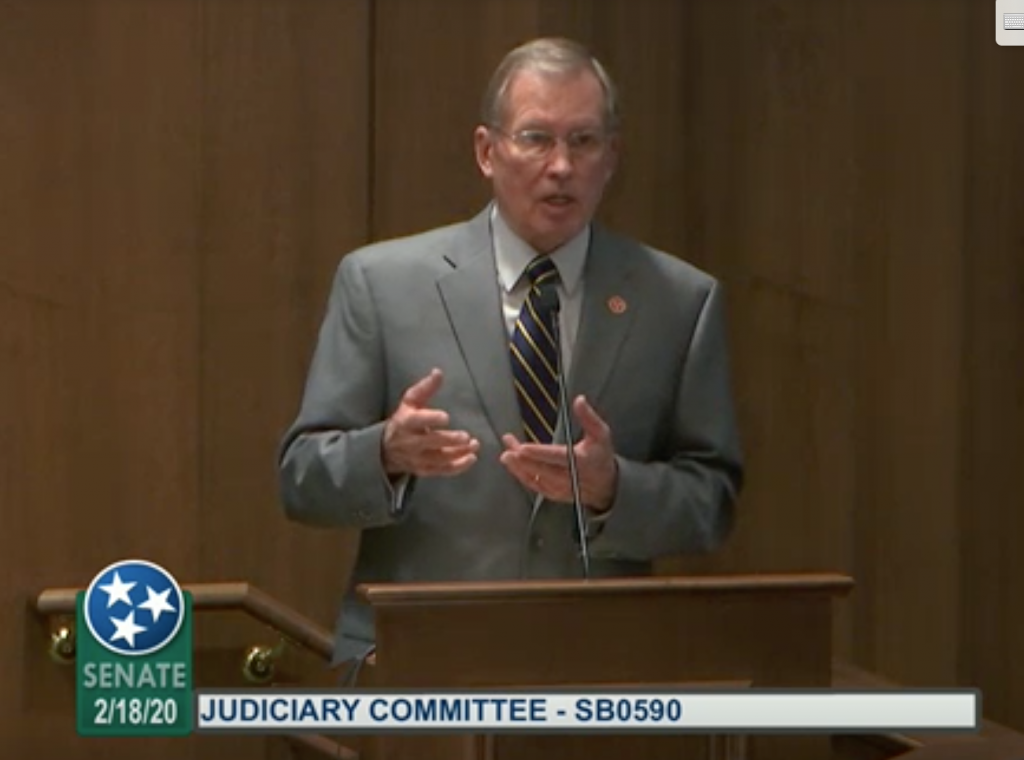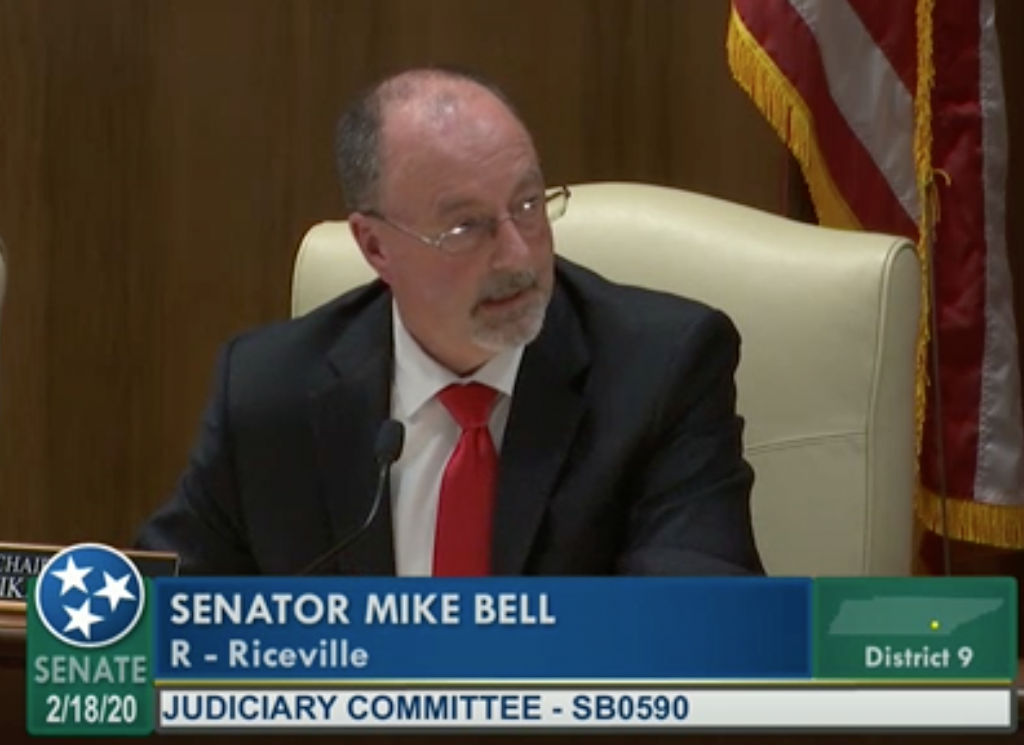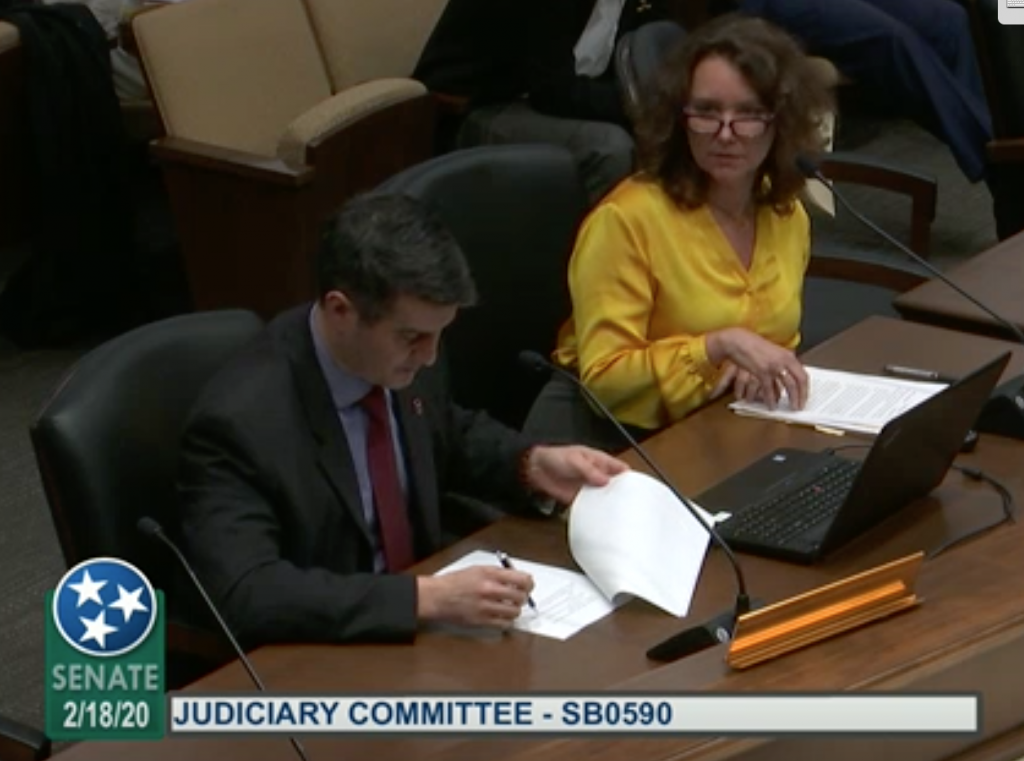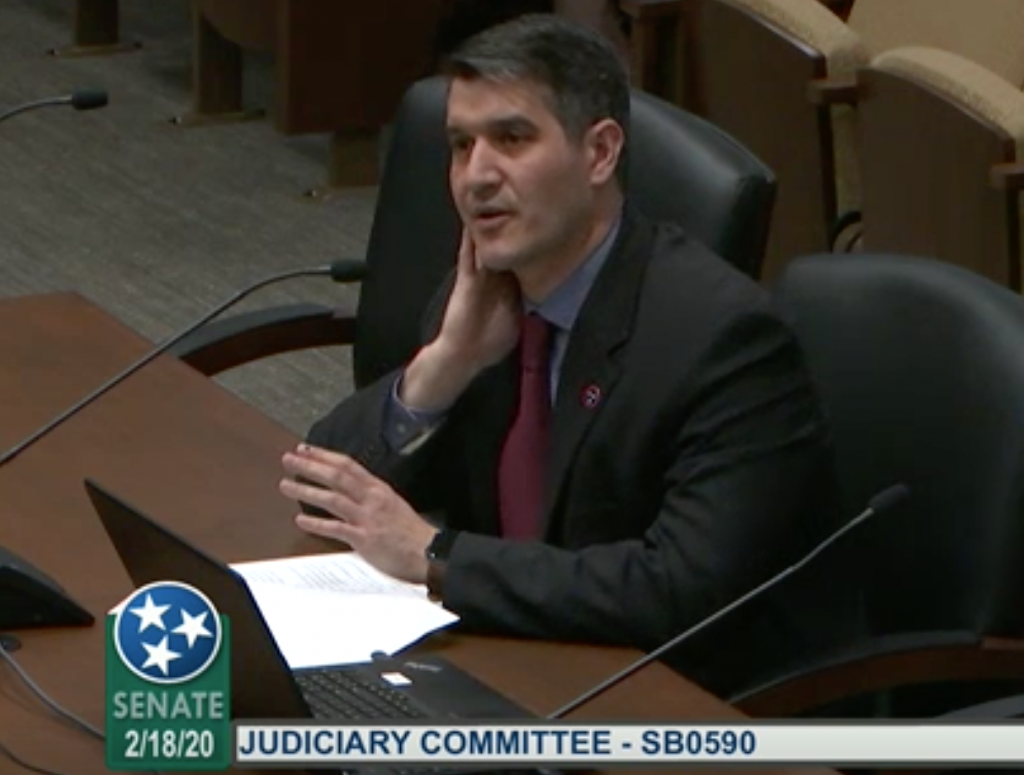Harassment bill fails on 5-4 vote
A bill that would allow a government entity to petition a court for an injunction against someone who was using the public records process to harass government employees failed in a Senate committee last week.

The harassment bill, sponsored by Sen. Ferrell Haile, R-Gallatin, arose last year after reports of a man who city officials in Gallatin and others believe is abusing the process and wasting government time through multiple and voluminous requests with seemingly no purpose.
Haile amended the bill, working with stakeholders including Tennessee Coalition for Open Government, which eventually supported the amended version of the bill.
Haile characterized the bill as an “anti-bullying bill” and told the committee that “this is not intended whatsoever to interfere with honest inquiries concerning our government.”
However, after almost nearly an hour of questions and testimony, the Senate Judiciary Committee voted 5-4 against the bill. (See video of discussion about the bill.)
Judiciary chairman concerned about the ‘political gadfly’

Committee Chairman Mike Bell, R-Riceville, said he appreciated what Haile was trying to do, but he could not vote for the bill. He noted that while the bill created a safe harbor for the media, for commercial and academic purposes, and for people investigating government operations for a public purpose, it could still be used against others.
“I’m concerned about the person who would be the political gadfly. I know one of those back home. And I think you could probably ask people in local government and they would say his activity might constitute harassment under your bill. And I just see someone who literally wants to know how government operates,” Bell said. “Freedom is messy … but that comes with having open government.”
Kyle warns against slippery slope
Sen Sara Kyle, D-Memphis, also voted against the bill. She said she thought the harassment definition was “too subjective” and “we’re going down a slippery slope.”
“I know those few or three we have talked about in the counties that this would be directed to, but I can imagine other situations where it would catch up innocent citizens,” she said.
Haile says problems will continue if not addressed
Haile told the committee he thought, after working on the bill for two years, that it now protected citizens, even those who were irritating to local government. He also said he trusted the judicial system in preventing the law to be used wrongly against citizens.
“If you’re going to address this, you have to have some compromise and get to some places that you might be uncomfortable with. But one of the places that I’m comfortable with is the judges, the judicial (system).”
“We’re going to continue to have these problems if we don’t address it in some way,” Haile said.
Sen. Janice Bowling, R-Tullahoma, supported the bill, and said harassment as defined in the bill was like obscenity. “You know it when you see it.”
In addition to Bowling, other senators voting for the bill were Sen. Kerry Roberts, R-Springfield, Sen. Dawn White, R-Murfreesboro, and Sen. John Stevens, R-Huntingdon. Stevens initially indicated problems with the bill but appeared to change his mind after testimony.
Joining Bell and Kyle voting against the bill were Sen. Jon Lundberg, R-Bristol; Sen. Katrina Robinson, D-Memphis and Sen. Todd Gardenhire, R-Chattanooga.
Lundberg said he “worried about fixing one problem and creating a hundred others.”
Amended harassment bill included safeguards suggested by TCOG, others
The amended bill contained several provisions that Haile added at the suggestion of TCOG, Tennessee Press Association and the Tennessee Association of Broadcasters.

The final version allowed a government entity to seek an injunction to prevent a person found to be harassing government from making requests for up to one year. During that period, the person could petition the judge to make requests.
The proposed legislation required a government entity to inform the person in writing the specific conduct that it believed constituted harassment, and only if that conduct continued could the government entity petition the court for an injunction.
For a judge to find that a person was harassing government with public records requests, the conduct would have to meet four criteria:
- The request had to be “made in a manner that would cause a reasonable person, including a records custodian or any staff of the public entity in control of the public records, to be seriously abused, intimidated, threatened, or harassed;”
- The conduct had to “in fact” seriously abuse, intimidate, threaten or harass the person;
- The requests had to be determined not to be made “for any legitimate purpose”; and
- The requests had to be “made maliciously.”
Legitimate purpose, which was not defined in the original bill, was defined in the amendment as:
(1) Publication or broadcast by a person engaged in gathering information for publication or broadcast connected with or employed by the news media or press, or who is independently engaged in gathering information for publication or broadcast;
(2) Using the information for a commercial purpose or for academic research; and
(3) Investigating or evaluating government operations for a public
purpose.
Bill would have required reporting information to state
The bill also required the government entity to file a copy of its petition with the Office of Open Records Counsel, as well as any orders from the judge. The Open Records Counsel was charged with including information about the actions in its annual report to the General Assembly, and to the Advisory Committee on Open Government.
Finally, the bill had a repeal date of 2024.
Pope testifies that his office receives complaints about requesters
Open Records Counsel Lee Pope testified that he has received inquiries from county and city attorneys asking how to deal with people who came in daily demanding public records. He said he did not know of any mechanism in the law to give them relief, though he later mentioned in some cases the office suggest getting a restraining order.

Pope said he thought almost every county has this “one kind of person” who tends to cause concerns, making voluminous requests. He said while there is nothing wrong with making large requests, “it tends to be the manner in which they make the requests” when there are problems.
He gave an example from the city of Murfreesboro where he understood that someone was upset about a traffic citation and requested to inspect every citation issued by the police department. He said the city estimated it would take five years to fulfill the request and is still working on it.
He pointed that such requesters knew that they couldn’t be charged to inspect records and took advantage of that part of the law in making the repeated or very large requests.
Pope said that the bill had been narrowed down and that a government entity would have to show that the person was acting maliciously, which he believed was a high bar to meet.
Other laws could be used in some instances to stop harassing behavior
Some lawmakers asked about other methods in the law that would allow a government entity to stop a person who was threatening or harassing government employees. Others had problems with the subjectivity of words such as “intimidating” or what was “legitimate purpose.”
District Attorney General Steve Crump, who is the legislative liaison for the Tennessee District Attorney Generals Conference, testified that several existing statutes might be used, depending on the nature of the communication by the public records requester. He mentioned the general harassment statute, an assault statute, a “retaliation for past action” statute and even the extortion law. He said the law used would depend on the type of threat or communication and the “predicate facts and grounds” leading up to the action.
As executive director of TCOG, I also testified about the bill, including explaining that I thought the provisions added in the amendment gave protection for the individual and reduced the chance that city and county attorneys would use the statute as a club against requesters.




